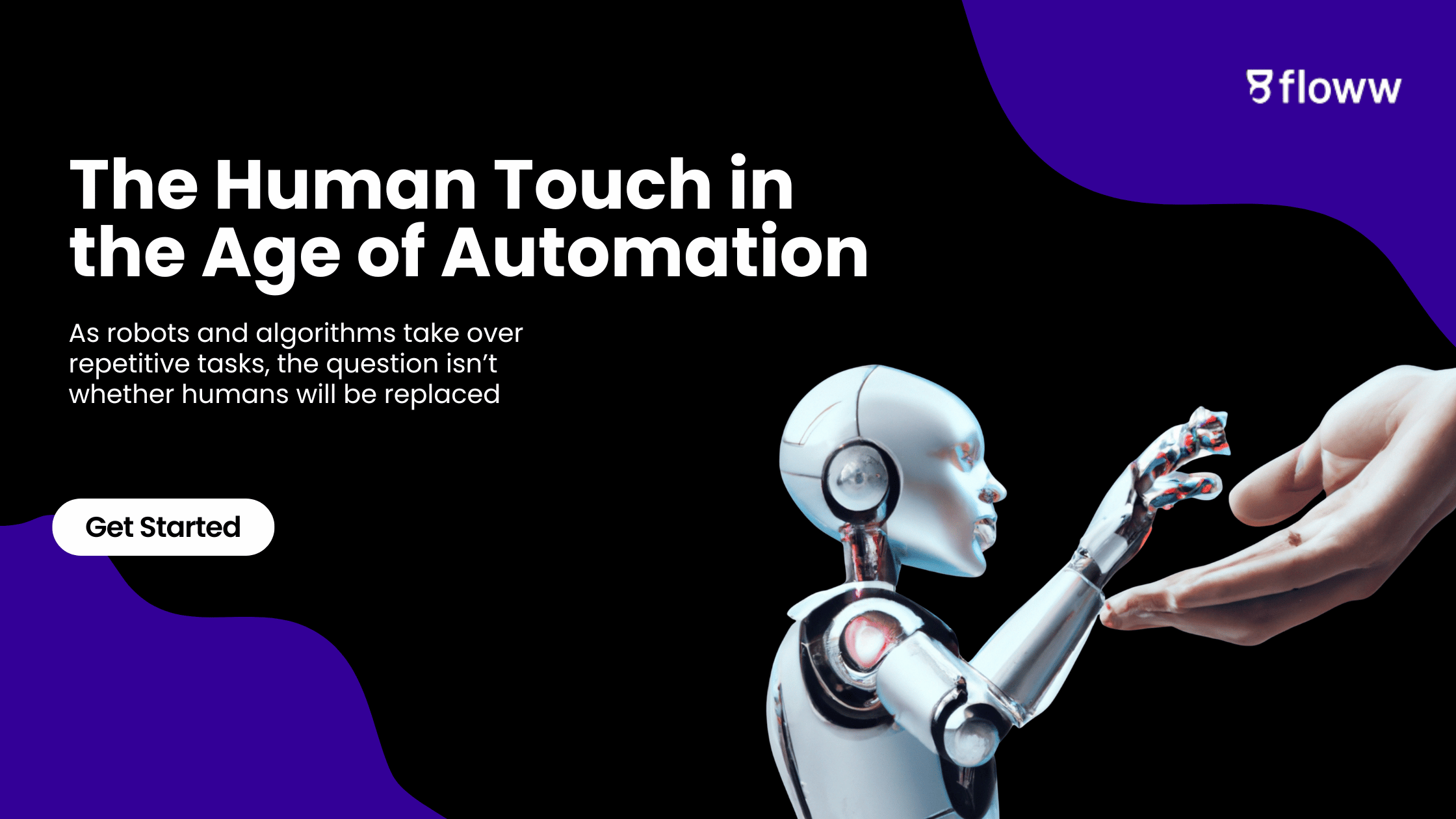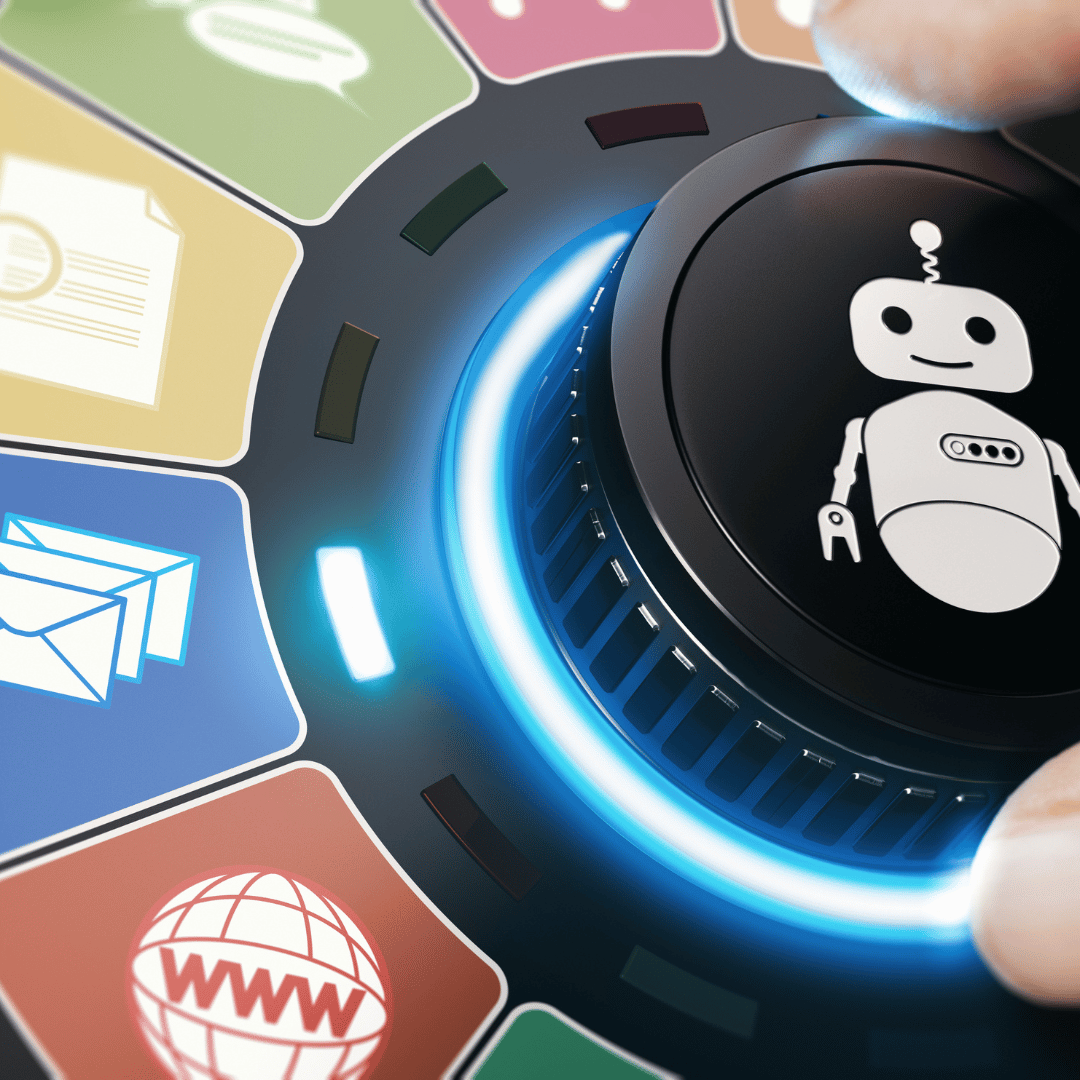The Human Touch In a Robotic World
As automation takes over repetitive tasks, what sets businesses apart is the human touch. In a robotic world, the future isn’t less human, it’s more. Here’s why people power will always matter most.

The important question here is - “Man vs Machine or Man with Machine?”
Every time a new technology arrives, the same old fear resurfaces: “Is this the end of human jobs?” This happened back during the industrial revolution and also post the rise of computers. Humans have always long worried about being replaced. Today, that anxiety has a shiny new face: “automation”.
Business process automation, robotic process automation, workflow automation, digital process automation; all these words sound like a futuristic takeover. But here’s the twist: automation isn’t about replacing humans. It’s about amplifying what humans do best while letting the machines take over what we shouldn’t be wasting our time on in the first place.
Think of it this way. Does anyone really miss the days of licking envelopes when email exists? Nobody wants to go back to standing in long queues at a bank when online transfers are a tap away. The human touch still drives decision-making, creativity, empathy, and strategy. Automation just clears the messy clutter that distracts us from doing those things.
So, in a robotic world, the human touch doesn’t disappear. It becomes more valuable than ever.
The Rise of Automation

Automation has been evolving quietly for decades, but in the last 10 years, it’s moved from back-office systems to the very core of business operations. To understand why it matters, let’s break down the jargon in human language:
- Business Process Automation (BPA): Streamlining repetitive, rule-based tasks like data entry, invoice approvals, or onboarding workflows.
- Robotic Process Automation (RPA): Software “robots” mimicking human clicks and keystrokes. This is faster, error-free, and tireless.
- Workflow Automation: Connecting different apps and processes so that work flows seamlessly without manual intervention.
- Digital Process Automation (DPA): The more advanced cousin, focusing on end-to-end business transformation by digitizing complex processes.
Are Robots Coming for Our Jobs?
Let’s address the elephant in the boardroom: automation anxiety. It’s the same story we’ve seen in every era of disruption. Farmers feared tractors, typists feared word processors, and today, accountants worry about AI-powered finance tools.
Here’s the truth: jobs don’t disappear, they evolve. A clerk who once spent eight hours filing papers can now spend that time analyzing customer trends. A customer service agent freed from answering repetitive “Where’s my order?” questions can now focus on solving complex problems and building relationships.
Automation removes the mechanical, repetitive layers of work. But what it cannot replace and never will is human creativity, empathy, and intuition.
The Reality: Tech + Humans Are Stronger Together

Automation on its own is like an orchestra without a conductor. Sure, the instruments will play, but it takes the human touch to create harmony. Consider an HR department:
- RPA can handle payroll processing flawlessly.
- Workflow automation can trigger onboarding checklists the moment a new hire is approved.
- Digital process automation ensures compliance documents are filed instantly.
But only a human HR professional can sit down with a new employee, understand their fears, inspire them with company culture, and turn a workplace into a community.
The most successful companies are not those that automate everything but those that use automation strategically to augment human strengths.
The Future of Work: What It Looks Like
Instead of imagining a dystopia where robots take over, picture this:
- Employees spend 70% of their time on creative, strategic, and relational tasks.
- Automation quietly handles compliance, scheduling, notifications, reporting, and workflows.
- Teams collaborate across borders, powered by digital process automation that makes geography irrelevant.
Future job descriptions will look different. Instead of “Data Entry Operator,” we’ll see roles like “Process Strategist” or “Automation Supervisor.” In short, jobs won’t vanish, they’ll level up.
Why the Human Touch Will Always Matter

So what exactly can humans do that automation can’t?
- Emotional Intelligence
- Automation can process words, but it cannot sense tone, sarcasm, or genuine human vulnerability. A good leader can walk into a room and feel the mood. No algorithm can replicate that.
- Storytelling
- Numbers convince, but stories move. A graph can show declining engagement; only a human can craft the campaign that reawakens interest.
- Creativity & Innovation
- Automation follows patterns. Humans break them. The next disruptive idea won’t come from a workflow bot but from a human willing to think differently.
- Ethics & Decision-Making
- Machines are optimised for efficiency. Humans must decide what’s right. In a world where data privacy, inclusivity, and sustainability matter, humans remain the moral compass.
Automation Without Humanity: A Cautionary Tale
When companies lean too heavily on automation without human touch, they risk becoming robotic themselves. Think about the last time you were stuck in an endless IVR loop pressing “1 for English, 2 for support.” Frustrating, wasn’t it?
Automation without empathy alienates. Customers don’t want to feel like ticket numbers; they want to feel like people. That’s why businesses must remember: the goal of automation is not to eliminate the human, but to elevate the human experience.
Conclusion
The robotic world is already here, but it’s not a takeover. It’s a collaboration. Business process automation, robotic process automation, workflow automation, and digital process automation are powerful tools. But remember, they are tools nonetheless.
The future belongs to businesses that understand this harmony. Let machines handle the repetitive, the routine, the rules. Let humans bring the empathy, the creativity, the intuition.
Because at the end of the day, people don’t buy from robots. They buy from businesses that feel human. And no matter how advanced the world becomes, the human touch will always be the most valuable currency in business.

